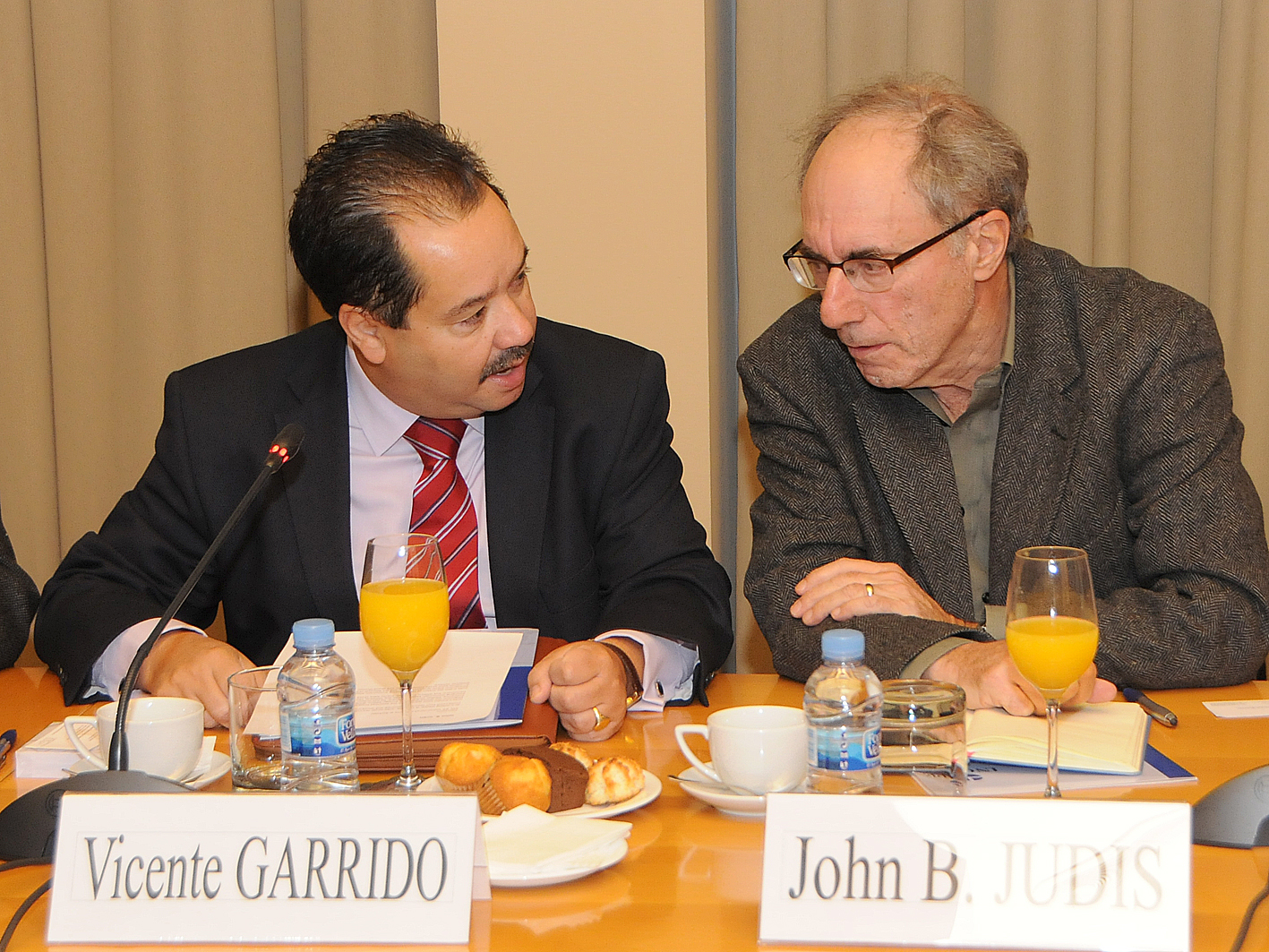U.S. Presidential Elections: From New Hampshire Primary to Super Tuesday

On February 19th, 2016, INCIPE organized a Working Breakfast titled U.S. Presidential Elections: From New Hampshire Primary to Super Tuesday to discuss the upcoming U.S. presidential elections in November. Dr. John B. Judis, journalist and investigator for the Carnegie Endowment for International Peace, attended the event.
In the current globalized world, where any action has repercussions on the other side of the planet, we are faced with one of the most important elections: On November 8th, the United States will elect its 45th president. World leaders and businessmen are concerned with the primaries, as this is where the two main candidates are chosen.
The United States has an almost completely bipartisan system made up of the more conservative Republican Party and the Democratic Party who, since the U.S. Civil War, have taken turns in the White House. With respect to the voters, the Republicans receive the support of the White Working Class and those with more economic power. Meanwhile, the Democrats have a more diverse voting pool, made up of immigrants, minorities, and the younger population, although this is changing with the emergence of candidates with never before seen proposals. But who in each party is battling for the nomination?
For the Democratic Party we have two clear candidates: Hillary Clinton, an example of the prototypical democrat, and Bernie Sanders, with a socialist-driven ideology. Both defend civil rights, such as universal healthcare, but differ in other aspects such as foreign policy, where Sanders classifies climate change as the most dangerous enemy, while Clinton prioritizes radical Jihadism. Sanders, although trailing Clinton, has been gaining a lot of support (she received 60.4% of the votes in New Hampshire and 49.6% in Iowa). As aforementioned, the United States has not had any leftist candidates until the appearance of Sanders; that a socialist candidate have this much support is quite surprising. Sanders represents a new rhetoric, totally different from what has until now been established, due to the fact that he aims to reach the population emotionally. On the other hand, Clinton is a more “technical” candidate, who does not achieve as much of a connexion with voters; nevertheless, she receives more support in foreign policy and national security, as she maintains the approach that all Americans support. It is expected that the Democratic nomination will go to Clinton, as societal pressures will preserve the established turn-taking between the traditional Republican and Democratic parties.
As for the Republican Party, there are numerous candidates among which three stand out: Donald Trump, another surprise in these elections because of his “eccentric” ideas (although he has valuable proposals such as ¨takeaway economies), Marco Rubio, who represents the renovation of the party taking a neoconservative position, reason for which the “old guard” sees him as a threat, and Ted Cruz, who personifies the most conservative wing of the party, causing caution toward him from the rest of the party. Trump’s ascension is the most unexpected of all (having received 35.3% of the vote in New Hampshire). The fight for the Republican nomination could potentially be between Trump and Cruz.
It should be noted that both sides of the electorate have polarized without agreeing on one candidate, but with considerable support for a candidate (Trump or Sanders) that with novel ideas that would end the established roles of the Democratic and Republican parties. It is worth pointing out that this polarization has also occurred in the mass media, which presents a strange position in that they do not support a specific candidate, as they had in previous elections.
Members of various different fields attended the Working Breakfast, including scholars, journalists, and International Relations analysts. The event ended with a questionnaire, where attendees shared different viewpoints, especially concerning the uncertainty of the future candidates for President of the United States of America.
Marina Dorado
INCIPE




